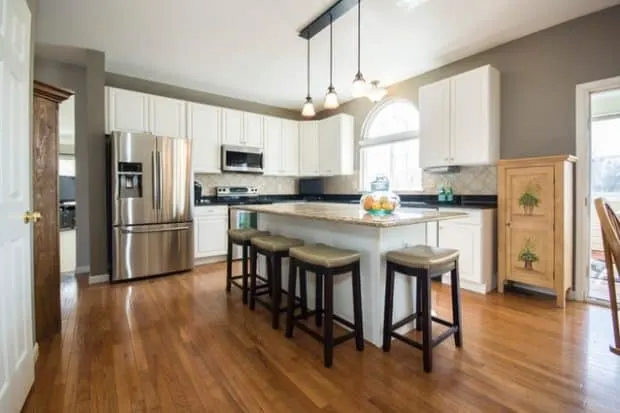
Even if you’re not a newcomer to apartment renting, it’s easy to overlook some basics when you’re viewing units in multifamily properties.
And since the average renter stays put for around three years before moving to a new property, anything you overlook could be an annoyance for a long time.
Therefore, it’s well-worth your time to learn these five basic factors of a smart apartment search. After you read this article and do the appropriate research, you’ll be well-equipped to find the ideal apartment: One that’s affordable, comfortable, and safe.
We’ll start with one of the most important basics: affordability.
How Much Will This Apartment Really Cost?
Just about every rental listing will include the monthly rent, so it’s easy to assume that this is your total monthly cost.
But there will be several other costs that probably won’t be included in the listing, including the following:
- Security deposits. Although the classic rule of thumb is that this deposit will be equal to one month’s rent, some states allow landlords to request bigger deposits.
- Some property managers offer another option: a smaller, non-refundable deposit.
- Pet deposits and rents. Pets almost always require an additional deposit that may be non-refundable. You may be charged additional rent for each pet as well.
- Parking fees. Although most multifamily buildings have their own parking lots, you may be required to pay more for covered parking. Or, you may need to buy a parking permit from the city.
- Other fees. Some apartment managers charge fees for processing your tenancy application. This is because many landlords carry out background and credit checks before approving an application.
An apartment property manager should provide you with details of all deposits and fees upon request. If they refuse, you’ll want to take this apartment off your list.
Another set of costs to consider are the utilities. Who will be paying the electricity, water, and natural gas bills? Is your internet service included?
Research Your Utilities, Internet, and Other Costs
Although they’re rare in most areas, a few rental properties are “all bills paid.” This means you won’t be paying your unit’s electricity, water, trash removal, or other utilities.
If you find an “all bills paid” apartment that passes the other basics in this article, great! However, utilities are usually paid separately, and you’ll be the one paying them.
Here are two common options:
Tenants pay for each utility.
- Apartment managers should provide contact information for your local electricity, water, gas, and internet providers.
- You may need to put up a separate deposit for your utilities.
If you’ll be paying your own utility bills, you’ll want to find out what your average bills will add up to if possible.
- While some property managers will provide this information, checking out the building’s online reviews may be helpful.
- If you’re familiar with heating and air conditioning systems, take a look at the apartment’s system. Older systems are usually less efficient.
Here’s another option you may encounter.
Your landlord charges a set monthly fee for one or more utility, or includes it in your rent.
- This is often because older properties would require extensive renovations before one or more utilities, usually water, could be managed by individual tenants.
Another important subject is your next apartment’s repair policy. Most landlords will quickly repair essential services, but you’ll want to research this ahead of time.
Apartment Repair Basics
While most landlords or property managers will carry out repairs as quickly as possible, you may also have state laws to back you up.
- The best place to begin? Ask about each unit’s repair policy. This should also be clearly stated in your lease.
- Checking out online reviews for an apartment complex may alert you to buildings where unhappy tenants waited weeks for repairs.
- Locate your own state’s tenant/landlord statutes or laws online. You can find links to each state’s tenant/landlord rules by visiting HUD’s directory of tenant rights for each state.
- HUD’s site contains links to every state’s tenant laws, although you may prefer to Google your state, together with a phrase such as “tenants’ rights.”
Now that we’ve looked at the costs and repair options for a typical apartment rental, let’s consider something equally important: Your safety.
Safety Begins at Home
An apartment that offers serious, effective deterrents against break-ins should be among your top picks. Here’s a statistic you may not be aware of: rentals are broken into almost as twice as often as single-family homes.
Another depressing statistic: Burglaries are among the hardest crimes to solve. During 2015, police only made arrests for 13.6% of reported burglaries.
The safest apartments will offer one or more of these anti-theft devices.
- Wireless alarm systems or cameras. If you’re not having any luck finding an apartment with this feature, research do-it-yourself systems online.
- Doorway and window reinforcements. A deadbolt can be made safer by replacing the strike plate screws with longer ones.
Another effective theft deterrent: a dog. Most burglars will avoid the risk of a barking dog waking residents and neighbors, or a dog attack.
In addition to choosing an apartment that provides these features, or can be easily upgraded, you’ll want to research the neighborhood itself. Safety begins at home
But It Doesn’t End There
If you’re moving into a new city or are unfamiliar with different neighborhoods, a little research can deliver lasting peace of mind and much more.
Several websites (and even some Android and iPhone apps, such as SpotCrime for Android and Crime and Place for iPhone) offer crime data for individual zip codes, neighborhoods, and cities.
- Sagittarius Man & Gemini Woman Love and Sex Compatibility - January 31, 2024
- Taurus Ascendant Rising Personality Traits in Men (Guide) - January 31, 2024
- How to Seduce and Attract a Sagittarius Man (Seduction Tips) - January 31, 2024
